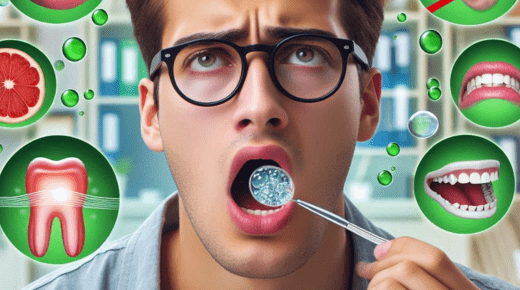Halitosis, or bad breath, is a common but uncomfortable condition that can both have an impact on social interactions and inhibit self-confidence as explained by a Henrico dental office. For a county like Henrico, where healthy living is key to the community; fixing this oral problem can not only improve your overall health but also build up our environment. In this article, we will discuss some of the major causes of bad breath along with useful tips to both combat and better manage them.
Getting to the Root of Bad Breath
1. Inadequate oral hygiene: Foul mouth hygiene is the most common cause of foul breath. Food particles can stay in the mouth after brushing and flossing, which can promote bacterial development and bad breath. Bad breath can also be caused by plaque accumulation on the tongue and teeth.
2. Periodontitis and Gingivitis: They are primary sources of halitosis apart from gum disease. Bacteria that cause bad odors can multiply due to inflammation, and infection of the gums creates a suitable environment for their development.
3. Dry mouth (Xerostomia): Saliva constantly cleanses the oral cavity by eliminating food particles and rinsing away bacteria. Insufficient saliva, usually because of dehydration or as a side effect from medications o some health conditions causes bad breath.
4. Food and drinks: Foods such as garlic, onions, or coffee can cause your breath to stink for a little bit. These compounds have powerful anesthetizing smells that can be absorbed through the skin, enter into your bloodstream to finally come out in exhaled breath from the lungs.
5. Smoking and Tobacco Products: Tobacco use is also a very significant cause of bad breath. Not only does smoking result in a direct smell, but it also dries out your mouth and irritates the gums which can cause gum disease.
6. Health Conditions: Abscesses, diabetes, and gastrointestinal disorders in addition to airway infections could also work towards bad breath. We can choose to smell honey or feces, diabetes, and sinus infection respectively.
Solutions to Treat Bad Breath
1. Good Oral Health: By brushing your teeth with fluoride toothpaste and flossing you can keep bad breath at bay. Brush twice daily and floss before bed to remove food particles and plaque that can build upon our teeth.
2. Scrape Your Tongue: The top part of the tongue can host bacteria and food particles that are major causes of bad breath. Regular use of a tongue scraper, or gently cleaning the surface with your toothbrush to remove deposits will help reduce this and enrich your breath — among other benefits.
3. Chew Sugarless Gum: Chewing sugar-free gum keeps the saliva flowing in your mouth, flushing away bacteria and other food particles. A gum that contains xylitol is ideal as well since xylitol reduces oral bacteria.
4. Maintain regular dental check-ups: Routine professional cleanings and examinations are essential to prevent bad breath, as well as detect early signs of it. Dentists can diagnose and treat other related problems like gum disease, tooth decay, or oral infections that may be causing halitosis.
5. Stop Smoking and Tobacco Use: This step not only helps in maintaining fresh breath but also improves oral health. Quitting tobacco can reduce the chances of gum disease and so on.
A multimodal strategy is needed to prevent and manage bad breath, including proper dental hygiene, staying hydrated, and addressing lifestyle issues. These preventative steps can help Henrico residents maintain good dental health and fresh breath. To avoid bad breath and improve your general quality of life, it is important to maintain a balanced diet, schedule regular dental checkups, and handle underlying medical disorders effectively. People can have healthier smiles and more confidence by implementing these tactics.



